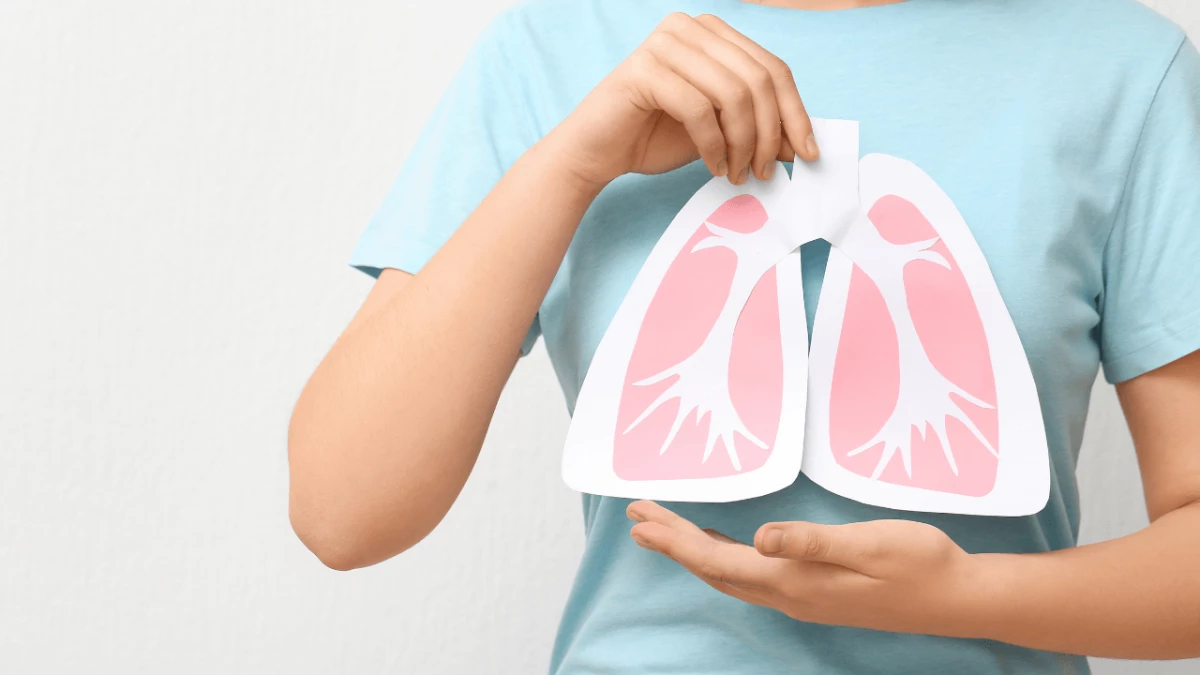Air is life—but sometimes its path to the lungs becomes unexpectedly difficult. Bronchiolitis is a condition that often remains overlooked, commonly perceived as a childhood diagnosis. In reality, it can affect adults as well—especially smokers or individuals exposed to infections. From a harmless cough to severe shortness of breath, symptoms often appear late and catch patients by surprise. During viral season, awareness of this condition is essential—it can support timely treatment and help prevent complications.
Respiratory bronchiolitis affects the smallest airways—the bronchioles. These tiny passages carry air from the bronchi to the alveoli, where gas exchange occurs. In bronchiolitis, the bronchioles become inflamed and narrowed, making it harder for air to pass through.
Who is at risk?
The condition most commonly affects smokers, but it can also develop after infections or prolonged exposure to dust and chemical substances. There is also a form known as infection-induced bronchiolitis, which may occur after viral illnesses such as influenza, RSV, or coronavirus, and less frequently after bacterial infections (e.g., mycoplasma, chlamydia) or severe pneumonia.
What are the symptoms?
In its early stages, bronchiolitis may be asymptomatic and discovered incidentally during imaging tests. When symptoms do appear, they may include:
- Shortness of breath during physical exertion or illness;
- Dry or productive cough;
- Feeling of breathlessness;
- Wheezing, chest tightness, or a “whistling” sound when breathing
- Fatigue and fever during viral infections.
Symptoms often worsen in autumn and winter, when viral infections are most common. In infection-induced bronchiolitis, complaints typically begin after an acute illness and may persist for weeks or even months.
The link between childhood infections and adult bronchiolitis Children frequently suffer from viral respiratory infections (RSV, influenza, parainfluenza, adenoviruses, coronaviruses). Bronchiolitis is one of the most common diagnoses in early childhood. Adults—especially those with weakened immunity, chronic lung conditions, or who smoke—can contract the virus from children and develop infection-induced bronchiolitis.
Incubation periods of common viruses:
- RSV: 2–8 days
- Influenza: 1–4 days
- Parainfluenza: 2–6 days
- Adenoviruses: 2–14 days
- Coronaviruses (incl. SARS-CoV-2): 2–7 days
The incubation period refers to the time between exposure to the virus (e.g., contact with an infected person) and the onset of symptoms such as cough, fever, or nasal congestion.
How is the diagnosis made?
Diagnosis is performed by a pulmonologist through:
- Clinical interview and examination to identify risk factors
- Spirometry to detect airway obstruction
- Lung CT scan, often showing areas of air trapping
- Additional tests if infection is suspected
How is it treated?
Treatment depends on the underlying cause:
- For smokers, quitting tobacco is the most important step.
- For infection-induced bronchiolitis:
- Symptomatic treatment with inhaled bronchodilators
- Anti-inflammatory medications (sometimes inhaled corticosteroids)
- Antibiotics only if a bacterial infection is confirmed by a physician
- Oxygen therapy in severe cases
Prevention and seasonal care:
- Annual vaccination against influenza and pneumococcus
- COVID-19 booster doses for high-risk patients
- Timely treatment of viral infections—avoid self-medicating with antibiotics
- Good hygiene and regular ventilation at home
- Limiting contact during peak viral seasonsSupporting immunity through balanced nutrition, sleep, and physical activity
What is the prognosis?
In respiratory bronchiolitis caused by smoking, the prognosis improves significantly after quitting. In infection-induced bronchiolitis, symptoms usually subside gradually after the infection resolves, although some patients may experience lasting changes.
Early recognition, smoking cessation, preventive vaccinations, and timely medical care are key to better quality of life and long-term lung protection. If you experience shortness of breath, frequent coughing, or wheezing, don’t delay a consultation. Book an appointment with a pulmonologist at VITA Hospital and take care of your lungs—because air is life.


 On this page, you can change your choices at any time after you have read and understood our
On this page, you can change your choices at any time after you have read and understood our